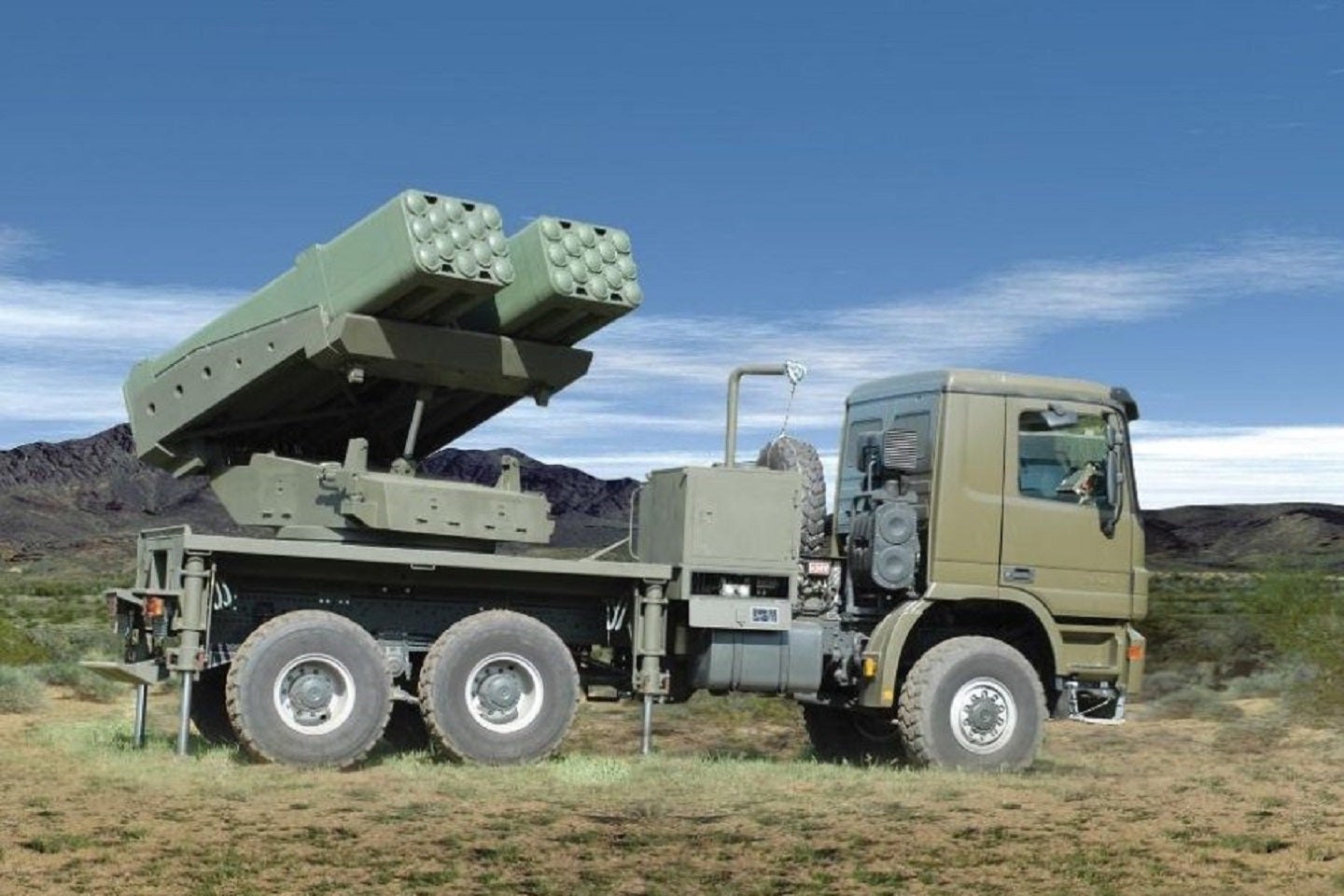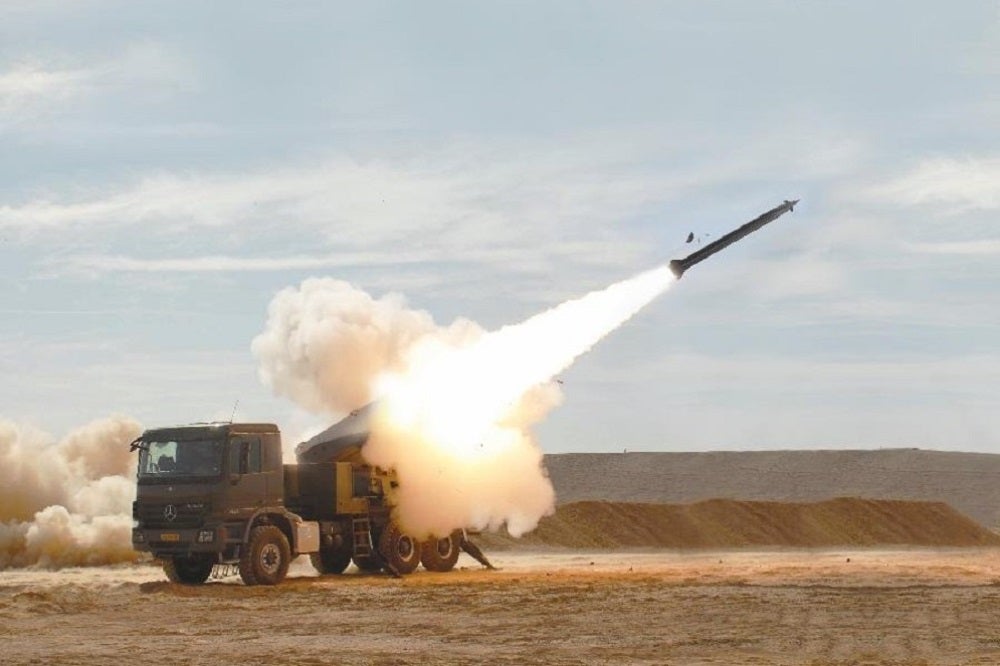
Elbit Systems will provide 20 precise and universal launching systems (PULS) to the Royal Netherlands Army.
The ministeries of defence (MoD) for Israel and the Netherlands agreed to a $305m deal for the systems. The Israeli company will develop these air defence assets over the next five years.
The 20 PULS artillery rocket systems will integrate on the COMMIT truck. The Israeli defence firm will supply accompanying missiles and training services.
The PULS is an autonomous, indirect-fire rocket artillery system providing a cost-effective solution to precise firing with its optimal responsiveness. There is no need to move PULS artillery units based on the required firing range; it can fire a variety of munitions at different ranges from the same position.
There are two pods, each pod holds a specific rocket type. These include: the Accular 122mm (18 rockets) with a range of up to 35km, the Accular 160mm (10 rockets) with a range of up to 40km, the Extra (4 rockets) with a range of up to 150km and the Predator Hawk (2 rockets) with a range of up to 300km.

Replenishing stocks
The Netherlands must be able to restock its resources. This is a pillar of its defence strategy according to the Vision 2035.
This is significant in the wake of the Ukraine war. The Dutch donated equipment including MANPAD launchers, Panzerfaust weapons, uncrewed aerial vehicles, and YPR-765 armoured personnel carriers. These donations will leave the armed forces in need of renewal and will drive strategy in coming years.
The PULS air defence system is fully adaptable to existing systems. It will “provide interoperability with Nato customers that have acquired these systems. This contract validates Elbit Systems’ cutting edge military technology and our strong partnerships with Nato countries across Europe,” the President and CEO of Elbit, Bezhalel Machllis stated.
This allows the Dutch MoD to integrate other standard requirements. Integration has become a buzzword for European militaries wanting to interoperate in the battlespace and co-operate in industry. Five out of six stories of the Dutch MoD’s news this week settle the country securely in a collaborative framework.
The Vision 2035 states: “with our Nato and EU partners, we must continue to have enough capabilities for credible deterrence.
“This requires… the ability to comply with the arrangements for rapid deployability… [and] investment in (conventional) capabilities to boost our striking power.”



